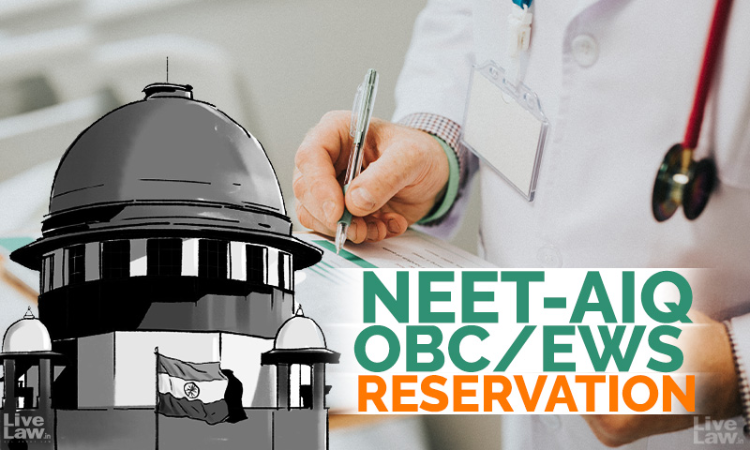NEET-AIQ : Supreme Court Questions Rs 8 Lakh Criteria For EWS; Asks How Can It Be Applied Uniformly Across Country
Shruti Kakkar
7 Oct 2021 5:18 PM IST

The Court also asked how can the same criteria for creamy layer be applied to determine EWS, which has no concept of social backwardness
Next Story


